A homeowner’s worst nightmare might involve some sort of water damage--possibly a flood from a burst pipe or damaged walls and ceilings from a slow water leak. No matter what the reason for the damage is, one thing is always true: you can only hope it is covered by your homeowner’s insurance policy!
These policies can be very picky about what they choose to cover and it is often disclosed when you sign the documents to purchase the plan. The worst thing you can possibly do when it comes to water leaks is ignoring them in hopes they’ll go away.
They won’t. The longer a pipe leaks water, the more damage that is caused and the less likely your homeowner’s insurance is likely to cover it!
Finding Water Leaks
You don’t have to be a plumber to spot potential water leaks. There are actually a few different signs that you have a slow water leak from one of your pipes. Should you experience any of these, don’t wait around to see if the issue worsens. Instead, call PhD Mechanical, Inc. We can locate the leak and determine if it is best to repair or replace the pipe. Here are a few signs to look for:
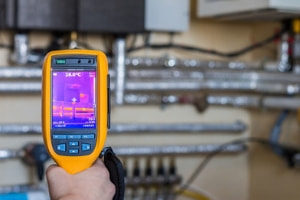 Sounds of running water
Sounds of running water- Sky high water bills
- Musty smells
- Visible mold
- Sinking ceilings
- Unexplained wet spots on walls, floors, or ceilings
Finding the exact source of a leak can be difficult, but we offer electronic leak detection. This will help prevent further damage and potentially allow your homeowner’s policy to pay for any damages.
Preventing Broken Water Pipes
 Most often, broken or burst pipes occur during the coldest days of winter. The best ways to prevent pipes from bursting due to freezing temperatures include running a small amount of water around the clock, keeping your home warmer than 55 degrees, allowing warm air to circulate by keeping cabinet doors open, and insulating exterior pipes.
Most often, broken or burst pipes occur during the coldest days of winter. The best ways to prevent pipes from bursting due to freezing temperatures include running a small amount of water around the clock, keeping your home warmer than 55 degrees, allowing warm air to circulate by keeping cabinet doors open, and insulating exterior pipes.
If you still run into a broken pipe for any reason, turn the main water supply off. Then call us to locate the break and repair the pipe. Once the pipe is repaired, handling any damages can begin.
What Damage is Covered by Insurance?
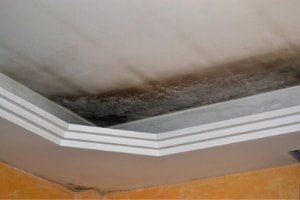 Most insurance policies will not cover water damage caused by a leak that was previously known about. This means that if you suspect you have a water leak in your home, be on the safe side and call a professional.
Most insurance policies will not cover water damage caused by a leak that was previously known about. This means that if you suspect you have a water leak in your home, be on the safe side and call a professional.
If a pipe breaks suddenly and causes water damage, your homeowner’s insurance will likely pay for needed repairs.
However, if it can be proven that you knew the pipe’s integrity was jeopardized, the insurance company may be less than willing.
Homeowner’s Insurance: A Necessary Evil?
 Homeowner’s insurance can be expensive and often left unused; yet as soon as you choose not to carry a policy, you will need it! Having this type of insurance policy can ensure you aren’t left with large repair bills for unforeseeable damages.
Homeowner’s insurance can be expensive and often left unused; yet as soon as you choose not to carry a policy, you will need it! Having this type of insurance policy can ensure you aren’t left with large repair bills for unforeseeable damages.
Generally speaking, if your home is well-maintained, you will minimize the likelihood of needing the policy. However, nothing is guaranteed and even the best-kept homes still face disaster from time to time. If you suspect that your plumbing has a leak or are worried about the integrity of your pipes, don’t ignore it!
A leak will never stop on its own and pipes that are corroded can break at any time. Call PhD Mechanical, Inc for electronic leak detection and to ensure your pipes are in good working order. Have you had a hard time getting your homeowner’s insurance policy to pay for water damage? Let us know what happened in the comments!

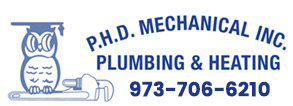

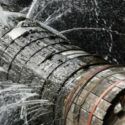
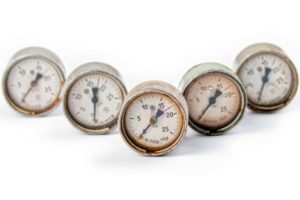 It can be enjoyable and make washing and bathing more efficient, but high water pressure can have a negative impact on your water pipes.
It can be enjoyable and make washing and bathing more efficient, but high water pressure can have a negative impact on your water pipes.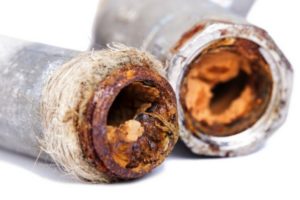 Decaying water pipes, including those showing signs of rust, could lead to an overall disintegration of the materials. Some of the symptoms include warping or discoloration of the pipes.
Decaying water pipes, including those showing signs of rust, could lead to an overall disintegration of the materials. Some of the symptoms include warping or discoloration of the pipes. Water quality can have an effect on your plumbing as well. Any contaminants in the water can also impact pipes and appliances. Even minerals, such as those found in hard water, can accumulate and leave behind residue inside every pipe and faucet.
Water quality can have an effect on your plumbing as well. Any contaminants in the water can also impact pipes and appliances. Even minerals, such as those found in hard water, can accumulate and leave behind residue inside every pipe and faucet.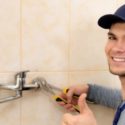
 When you have a clog, you do everything that you can in a hurry to get rid of it. However, pouring a clog remover down the drain isn’t a good idea.
When you have a clog, you do everything that you can in a hurry to get rid of it. However, pouring a clog remover down the drain isn’t a good idea. When your water pressure is elevated, it puts a lot of strain on your plumbing which could cause it to break and leak.
When your water pressure is elevated, it puts a lot of strain on your plumbing which could cause it to break and leak. Be proactive in finding leaks before they develop into something more damaging. You don’t have to wait until you see a flood or severe water damage to realize that you have a leak.
Be proactive in finding leaks before they develop into something more damaging. You don’t have to wait until you see a flood or severe water damage to realize that you have a leak. Over time, you may experience corrosion in your pipes, which can cause serious leaks, however, this can be slowly prevented.
Over time, you may experience corrosion in your pipes, which can cause serious leaks, however, this can be slowly prevented. If you are not 100% satisfied our services, then take advantage of our 1 year guarantee. We are dedicated to providing the absolute best services. Trust the professionals!
If you are not 100% satisfied our services, then take advantage of our 1 year guarantee. We are dedicated to providing the absolute best services. Trust the professionals!